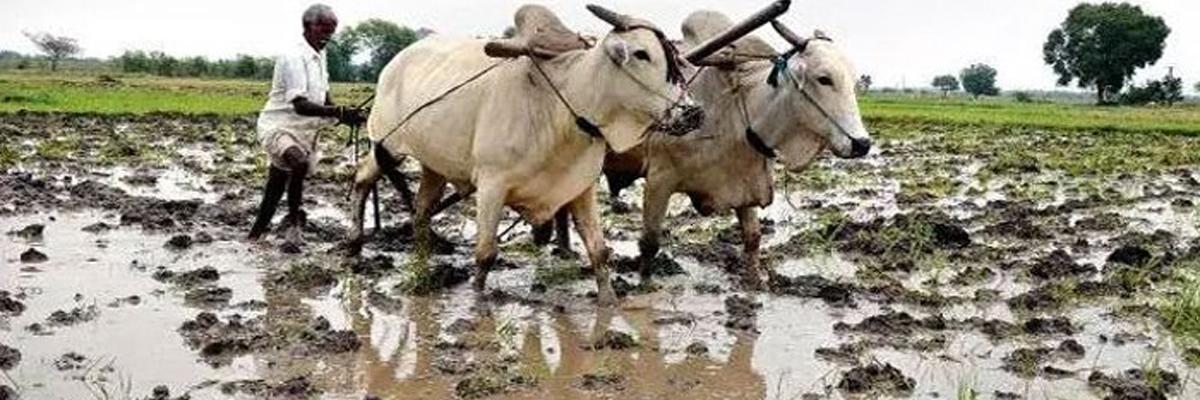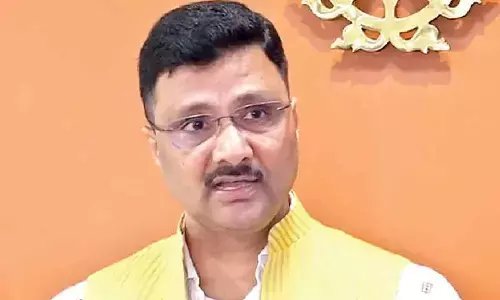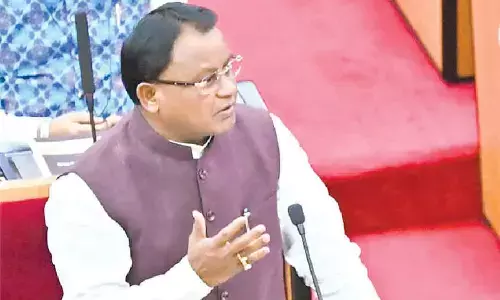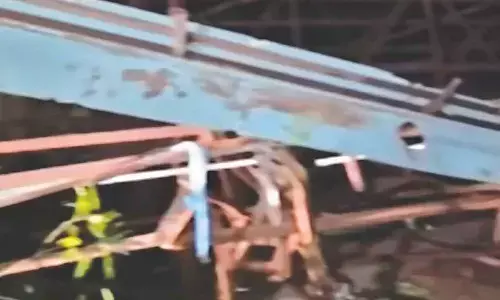A game changer for farmers

Owes of farmers in India need not be over emphasised Recent agitation of farming community in India is a testimony to their plight A twilight in the darkness is the Rythu Bandhu scheme RBS a cash transfer of Rs 4000 per acre per crop season, twice a year introduced by the Government of Telangana
“If agriculture goes wrong, nothing else will have a chance to go right in the country.” -M. S. Swaminathan
Owes of farmers in India need not be over emphasised. Recent agitation of farming community in India is a testimony to their plight. A twilight in the darkness is the Rythu Bandhu scheme (RBS)- a cash transfer of Rs 4000 per acre per crop season, twice a year- introduced by the Government of Telangana. Keeping aside the political affiliations and arguments on its viability for a while, the economics of the programme is worth a discussion.
In a state with over 36 million population, 55.6 per cent people are engaged in agriculture and allied sector. According to NITI Aayog reports, 85.86 per cent are marginal farmers who own around 34.41 per cent of farm holdings. The small farmers own up to 13.27 per cent of total number of farm holdings in the state. Furthermore, in Telangana, many districts are drought prone due to erratic monsoon; almost 63 per cent of the crop is rain-fed and production depends on the vagaries of rainfall; most of the cropped area is irrigated through bore wells and dug wells, which are either dried up or have very less water; land holdings are fragmented.
Suicides by farmers, heavy indebtedness, scanty credit supply have thrown many farmers into poverty. Besides this, poor financial accessibility, erratic monsoon, increasing cultivation costs, heavy indebtedness has always been looming over the small and marginal farmers in the state. Arguably, this is the situation of farming community all over India.
The programme
Government is supporting the ‘Pattadar’ (title holders) farmers, with Rs. 4000 per acre of land at the beginning of crop season twice a year as an investment support. In total, 58 lakh farmers with 1.42 crore acres of land are expected to benefit from this scheme. The scheme is received well by all barring a few who are dissatisfied for political reasons. The government has allocated around 12,000 crore rupees in 2018-19, with additional cost of 1000 crores due to 24/7 free power supply. In order to avoid the fallacies of direct benefit transfer (DBT) schemes, the government has issued cheques to all the beneficiaries.
Inspired by this programme, a dialogue between Government of Telangana and Food and Agriculture organisation (FAO) of the United Nations was held recently to collaborate with Telangana under South-South Cooperation in the development of seed sector in African countries. This shows the importance of RBS at a global level.
Direct Investment support (DIS)
This Direct Investment Scheme that directly transfers cash to farmers to ensure a safety net, is an income support programme which helps farmers suffering due to volatile agriculture markets. Different from conventional Direct Benefit schemes and Price Deficiency Payment (PDP) schemes, DIS is easier to implement. Moreover, given the inefficiencies present in PDP schemes like presence of intermediaries ignoring the demand side, Minimum Support Prices focusing on cost plus pricing, leading to more distortions in the agri-marketing systems- have caused DIS to be a better plan in aiding the hurt farmers.
Globally, China implements a programme similar to DIS, in the name of comprehensive input subsidy scheme. It gives aggregate input support to the farmer on per acre basis. Merging all input-based subsidy schemes into one lump sum payment on per hectare basis shows that China is gradually moving towards DIS or DBT system. Most importantly, Rythu Bandhu Scheme is easier to implement, more transparent, more equitable, crop neutral, less distorting the agri-marketing systems, and nil or less presence of intermediaries
Benefits of RBS
Given the situation of financial inaccessibility, this scheme directly hands over cash to farmers for agricultural production. This tries to empower poor farmers to increase their wealth and contribute to food production. The amount is more or less equal to crop loan given by the commercial banks. While, bank loans lead to a farmer’s capital erosion while repaying, RBS leads to capital accumulation since there is no repayment. Moreover, the Regional Rural Banks that were established way back in 1976 with a single motto of taking institutional credit to the door steps of farmers with simplification of procedures, and timely credit have already distanced themselves from the needy farmers by moving to urban centres with plea of commercial viability.
By looking at the demand side story, there is deficiency of food production. Thus, supply constraints have driven up the prices. Hence to break the vicious cycle of constraints, Rythu Bandhu Scheme injects money into farm investment leading to increased productivity.
Despite having a plethora of programmes on hand, the centre has appreciated Rythu Bandhu for its structure and objectives in solving the agrarian distress. Taking Rythu Bandhu to central level and implementing across India would raise the food productivity. According to World Bank, agriculture financing provides market-based safety nets. This will try to absorb the volatility present in agri-markets.
Risks?
Any initiative to help people is not free from criticism, and so is RBS despite its positive impact. Economists believe that RBS is creating a safe environment for the farmers which will hinder their growth. The overprotection by the government may lead to moral hazard problems. The farmers are thrown into a controlled environment, if let out cannot sustain the risks involved. Another problem comes with the defined uncertainties as whom to include in the program. For instance, tenant farmers who constitute 40per cent of Telangana farmers are excluded from this program.
According to C. Parthasarathi, tenant farmers are on the move, so there is a high probability of double counting. Apart from tenants, rich farmers and wealthy landlords are not excluded. Thus, the problem lies with the inclusion and exclusion of farmers and in targeting. Wasting money on the rich is not what a poverty reduction scheme should aim at.
What next?
To summarise, a paradigm shift in terms of increasing agricultural production, sustainable incomes for farmers, fall in indebtedness, use of latest technology, empowerment of marginal farmers, continued access to agricultural markets and controlled food inflation can be seen in short term and long-term sustainable development.
(P Gargi Rao - The author is a Development Economist and an alumna of London School of Economics)




